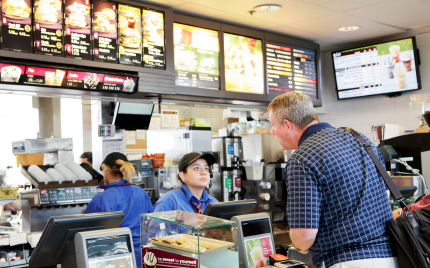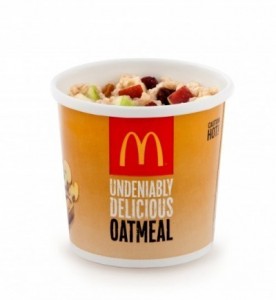From the “seemed like a good idea at the time” department: Marriott International’s launch this week of a campaign to encourage the tipping of hotel housekeepers landed like a lead balloon, and has a number of angles that business writers can localize to take advantage of the buzz.
Marriott on Monday said it has partnered with two non-profits in a program called The Envelope Please, which involves in-room reminders (the envelopes) for guests to tip what Marriott is calling hotel room attendants.
Nothing wrong with tipping hotel housekeepers — I do it all the time — but the public backlash to Marriott’s plea is going to rank right up there with New Coke, Netflix’s “Quickster” foray and other PR blunders as a feel-good ploy gone bad. McDonald’s budget tips for its low-wage employees spring to mind; that widely derided effort last year had worker advocates pointing out that the meager budget the fast-food chain touted — including $20 a month for health care — wasn’t even possible on one of its own restaurants’ pay.
Now, Marriott is being reviled in editorials, on social media and in headlines. CBS News laid it on the line with “Marriott wants maids to get a raise, through your tips,” and even Fortune snarking “Marriott to hotel guests: Please pay our maids for us.” New York magazine says “Multi-billion dollar corporation encourages you to tip its workers” and calls the campaign “galling,” noting that Marriott posted well over half a billion dollars ($626 million, actually) in annual profits; according to Fortune, the ‘room attendants’ make a little more than $19,000 a year.
Working hard for the money
Meanwhile, as CNBC reports, the hospitality industry also is fighting minimum wage laws and other pressure to raise worker pay. With hospitality jobs among the biggest gainers (the Bureau of Labor Statistics says they represent one in five non-farm jobs added during the recovery) and the prevailing topic this year of most jobs creation happening in low-wage categories, a look at how service workers are paid and whether they increasingly depend on tips might be intriguing. At some levels, tipped jobs can be lucrative — tales are out there of bartenders earning $96,000 a year and the like — but most reports find that tipped workers tend to skew poor.
Here’s a Quartz piece in reaction to Marriott’s news that says “Confirmed: Tipping is a terrible way to pay people,” and notes that when employers are allowed to pay tipped workers less than minimum wage, huge compliance issues arise. The Economic Policy Institute recently published a briefing paper about the two-tier minimum wage system and the report notes that an astounding 83.8 percent of restaurants in a recent Department of Labor sweep were found to be in some violation of the wage laws related to tipped workers. Here’s a Tampa-specific release from the Labor Department, for example; you might check in on what data are available for your area.
Tipping the scale
I wonder if a critical mass of tips could bump hotel room maids into the “tipped worker” category and allow them to be paid the lower “tipped minimum wage.” That might be a question for labor experts, unions and state or federal regulators.
Another angle is the basic personal finance one of tipping hotel room cleaners; you might survey area motels and hotels to find out what common practice is. I’ve noticed that envelopes are more common in recent years; previously the etiquette-approved method was to leave a few dollars or more on the pillow or in an area where it otherwise is clear it’s for the maid. I know travelers who make a point of using the in-room note pads and pens to write a note so that the cash can’t be mistaken for a guest’s left-behind or dropped money. However, judging by discussions in person and by groups like the Etiquette Hell message forum, not everyone agrees that tipping in hotels is necessary or desirable and the topic can become quite heated. What is the norm in your community? What is the tipping norm at other venues from furniture delivery to car detailing to landscaping?











